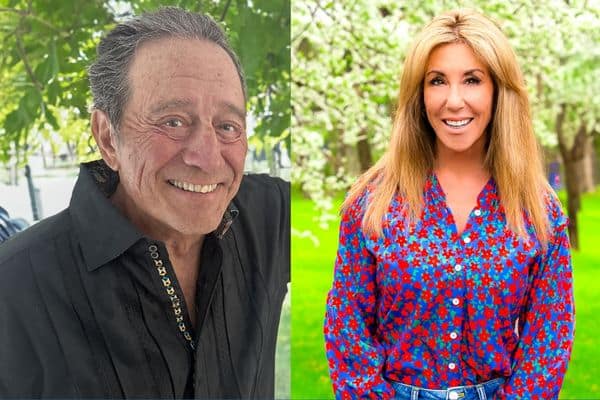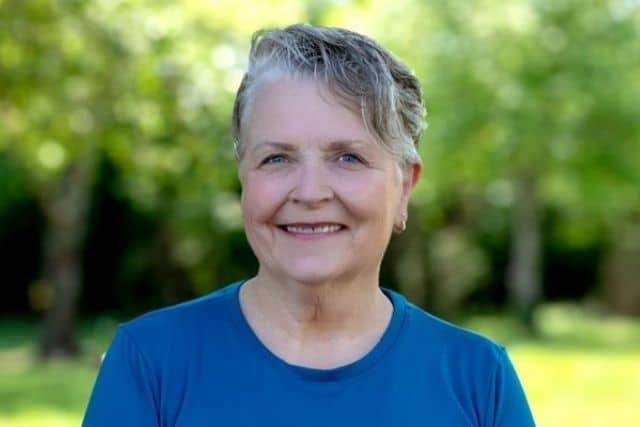Diagnosed with mild cognitive impairment (MCI) due to Alzheimer’s in 2020, Mike Zuendel is one of a growing number of people advocating for early detection, proactive treatment, and stigma-free conversation about Alzheimer’s disease.
Mike Zuendel’s search for his missing cell phone resulted in a trip to the doctor. Forgetting words and misplacing items were clues that something wasn’t right. With a family history of Alzheimer’s and confirmation of his ApoE4 genetic status, he sought answers. That journey led to a diagnosis of MCI due to Alzheimer’s, but it didn’t stop him. Instead, Zuendel leaned into advocacy and treatment, determined not to let the disease define him.
In this conversation with Being Patient Founder Deborah Kan, Zuendel opens up about navigating the diagnostic process, the hope he found through treatment, and his mission to change how we talk about cognitive decline. From starting a monoclonal antibody therapy to launching a nonprofit aimed at eliminating the stigma around the word “dementia,” Zuendel shares what it means to live well after an Alzheimer’s-related diagnosis.
Read on or watch the video.
Being Patient: What were the first signs you noticed before your MCI diagnosis?
Mike Zuendel: Both my mother and father died from Alzheimer’s, and I was their caregiver, so I knew what to look for. One day, I was searching for my phone all around the house—bedroom, kitchen, garage—only to realize I had been holding it in my hand the entire time. That was a big moment for me. I realized something wasn’t right and decided I needed to take it seriously.
Being Patient: How old were you then?
Zuendel: I was 66 at the time. I hadn’t retired and still haven’t. I run a successful business and nonprofit. I’m probably busier now than I’ve ever been. But I did notice word-finding difficulties and short-term memory issues. I was still functioning well overall, but something felt off.
Being Patient: Did you already know you had a genetic risk?
Zuendel: Yes. Years earlier, I’d taken a 23andMe test. My daughter reminded me that it included genetic info related to Alzheimer’s. I went back and found that I carry two ApoE4 alleles. That confirmed my higher risk.
Being Patient: Was the memory loss affecting your work?
Zuendel: Mostly short-term memory. I’d misplace things and forget where I put them minutes later. Word-finding issues were happening, too. Someone once said, “Don’t worry if you misplace your keys, as long as you know what they’re for.” But I think we do need to worry about early detection.
“Someone once said, ‘Don’t worry if you misplace your keys, as long as you know what they’re for.’ But I think we do need to worry about early detection.”
Being Patient: At what point did you go see a doctor?
Zuendel: After the phone incident, I decided I had to act. I tried getting into the Mayo Clinic but couldn’t, so I turned to the Banner Alzheimer’s Institute in Phoenix. It took about nine months to get in and complete the evaluation process.
Being Patient: Tell us about your parents’ experience with the disease.
Zuendel: They were diagnosed later in life—my dad in his early 80s, my mom in her mid-80s. Their disease courses were very different. My dad played football in the 1930s and may have had a traumatic brain injury component. He declined rapidly, while my mom’s progression was slower.
Being Patient: When you finally saw a doctor, were you expecting a diagnosis?
Zuendel: I wanted to know if this was just [attention-deficit/hyperactivity disorder] or something more. My first visit confirmed memory loss. After neurocognitive testing and a PET scan, I received the [diagnosis of] MCI due to Alzheimer’s. I found out through the patient portal one weekend. Even though I suspected it, the news hit hard. I cried a lot that weekend. My family did, too. But I told them, “I’m going to survive. I’m not letting this disease defeat me.”
“I cried a lot that weekend. My family did, too. But I told them, ‘I’m going to survive. I’m not letting this disease defeat me.'”
Being Patient: Was there a specific test that confirmed Alzheimer’s?
Zuendel: Yes. I had a three-and-a-half-hour neurocognitive exam, and a PET scan confirmed widespread beta-amyloid buildup in my brain. The scans showed areas of abnormal amyloid that blurred the gray-white matter boundaries.
Being Patient: Were you enrolled in a clinical trial?
Zuendel: No. But I was among the first to start commercial use of aducanumab (Aduhelm). I completed 36 monthly infusions. [Now] I have a normal presence. Amyloid is naturally present in the brain. When I started, my amyloid score was 70. Anything over 40 is considered high. We brought it down to 3.6. My doctors called it a miraculous response.
Being Patient: Are you switching to lecanemab (Leqembi)?
Zuendel: Possibly. I had a washout period after stopping aducanumab in September, and we’re discussing next steps. My doctors believe continuing anti-amyloid therapy is a good idea to keep levels low. We don’t know if amyloid will come back at the same rate or slower, so staying on treatment might help. We also don’t know what kind of damage has already been done or how much can be improved.
Being Patient: Does having two ApoE4 alleles affect your treatment decisions?
Zuendel: I know the risks. The side effects have gotten too much press. I also know the guaranteed side effects of not treating Alzheimer’s. I’ll take that chance any day.
“I refuse to let this disease define me. And my message to others is this: With early detection, you can live a healthy, productive, and joyful life.”
Being Patient: How are you feeling today?
Zuendel: I feel great. I’m full of gratitude. I had another neurocognitive exam recently, and my IQ actually went up two points. Statistically insignificant, but I’ll take it. My impairments haven’t worsened. I’m stable. I built a new business office, [I] ski 80 days a year, and [I] travel. I refuse to let this disease define me. And my message to others is this: With early detection, you can live a healthy, productive, and joyful life. But if you wait until symptoms are obvious, it might be too late—these treatments only work in early or mild stages.
Being Patient: What motivated you to speak out publicly?
Zuendel: I didn’t want to hide or lie to people. I had a talk with my family. One of my daughters said, “If you don’t do this, who will?” That stuck with me. I realized stigma keeps people from seeking help. That inspired me to become an advocate.
Being Patient: You’ve also launched a nonprofit?
Zuendel: Yes. It’s called The Initiative to Change the D-Word. Our research shows the term “dementia” carries stigma and prevents early detection. We encourage alternatives like “Alzheimer’s and related diseases” or “cognitive impairment.” We even developed a language guide for the media and clinicians.
Being Patient: Did you change your lifestyle after your diagnosis?
Zuendel: Not much. I’ve always been active. I run, ski, and eat healthily. My wife is a great cook, so we’ve leaned even more into a Mediterranean-style diet. I take recommended supplements, but I’m not perfect—I’ve recently developed a taste for ice cream! I tell people, one day I’ll say, “I used to have Alzheimer’s.”





Awesome, we need this type encouragement!!! Now’s not the time to up but do get moving! Find a way! Hooray, hooray !
Hi Ondria, thank you for being part of our community!
My journey with Parkinson’s began four years ago. Despite being on Levodopa and other medications for over two years, the disease progressed quickly. Last year, I began a herbal treatment program for Parkinson’s through NaturePath Herbal Clinic. Within a few months of starting the treatment, I experienced significant improvements, my movement and balance improved greatly, and the tremors stopped entirely. Visit their website ww w. naturapathherbalclinic. c om. I feel alot better than I have felt in years.
I’m deeply grateful that my dad is no longer suffering. He battled Parkinson’s Disease for 8 years, during which we relied on Carbidopa-Levodopa. While the medication helped initially, its effects wore off quickly, and his symptoms progressively worsened.Eventually, we were introduced to a treatment program from Earth Cure Herbal Clinic, and the results have been life-changing. After completing the program, my dad’s symptoms significantly improved and ultimately disappeared. He’s now able to move freely, work, and enjoy daily activities that were once impossible.I wholeheartedly recommend Earth Cure Herbal Clinic to anyone seeking alternative treatment options. You can learn more or contact them through their website: http://www.earthcureherbalclinic.com.